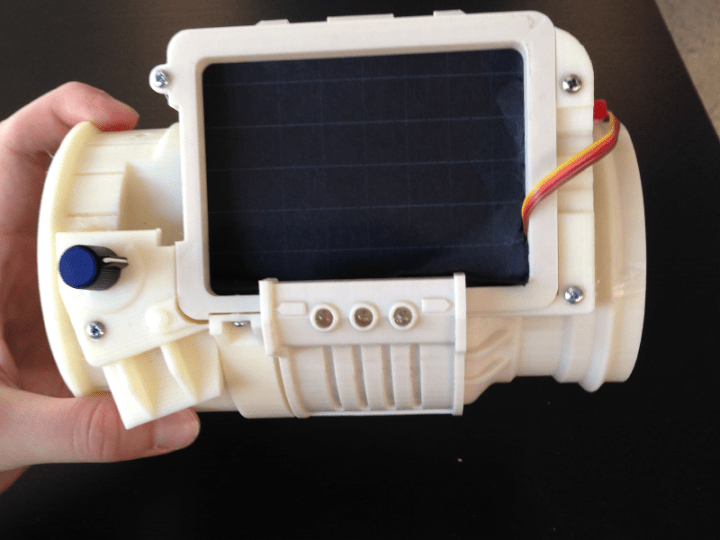
In response to a NASA Challenge to develop Space Wearables, a team from (Old) Reno has developed a working Pip-Boy 3000, the wearable PDA favored by Fallout’s vault-dwellers from New Vegas to the Capital Wasteland. The wrist-mounted computer is packed with environmental sensors to determine whether a given environment is safe for exploration and helmet-removal, and the builders plan to add in communication functions and biometric sensors to round out its features. While no additional safety features have been announced, concerned astronauts can always hedge their bets by picking up an alien blaster before returning to the rad-blighted Earth’s surface.
The Challenge is one of dozens spread across the five themes (Technology in Space, Human Space Flight, Asteroids, Earth Watch, and Robotics) in NASA’s International Space Apps Challenge 2014, which aims to encourage the international community to develop open-source solutions to some of our most pressing problems, both on Earth and beyond.
This is hardly the first time that science fiction has fueled real-world technological development; Dr. Martin Cooper, Motorola’s general manager in the early 1970’s, cited seeing Captain Kirk’s communicator on Star Trek as the impetus for developing the first cellular phone in 1973.
Space Apps Reno: Pip-Boy 3000 from Pip Boy on Vimeo.


